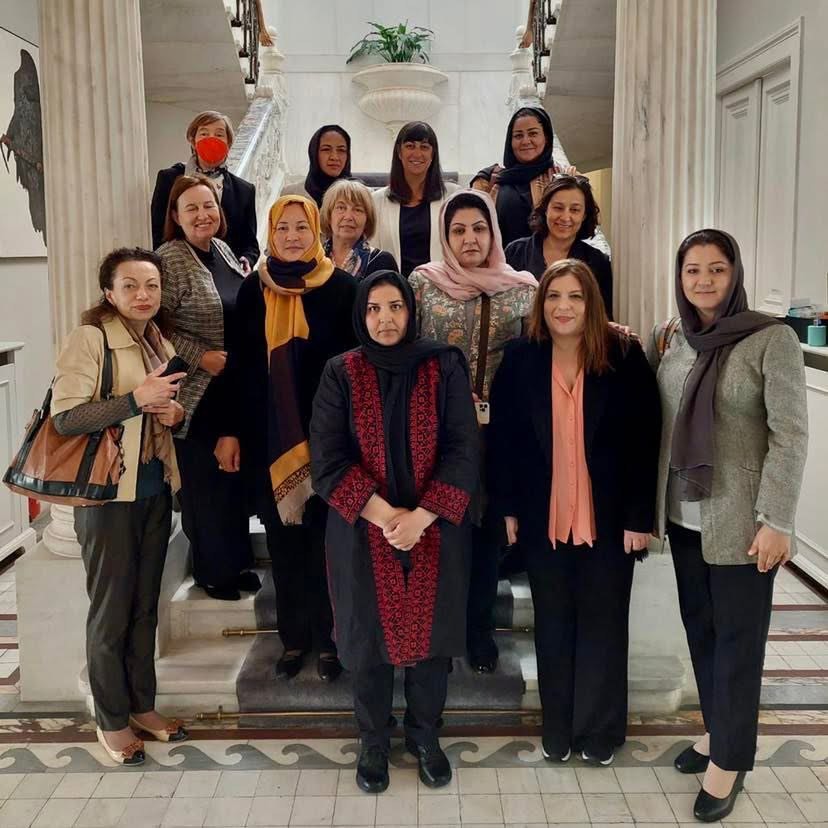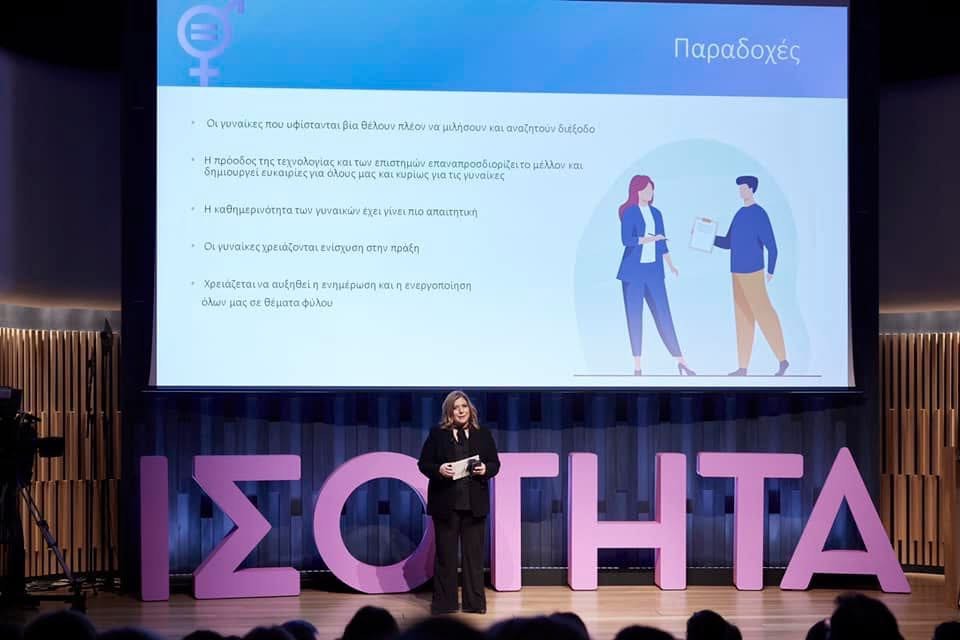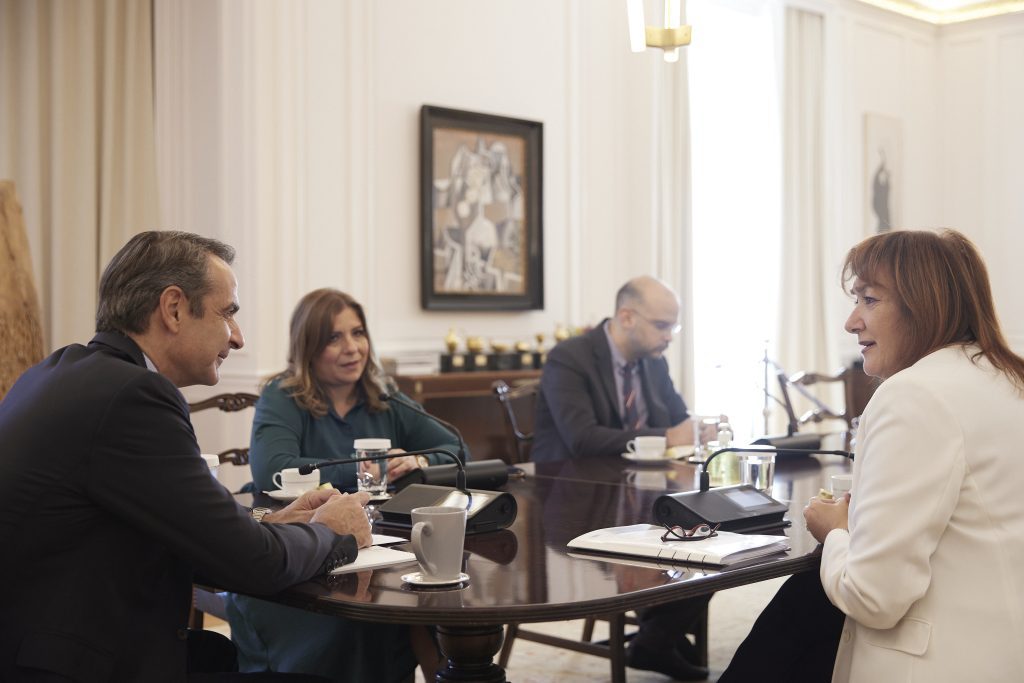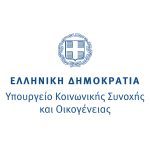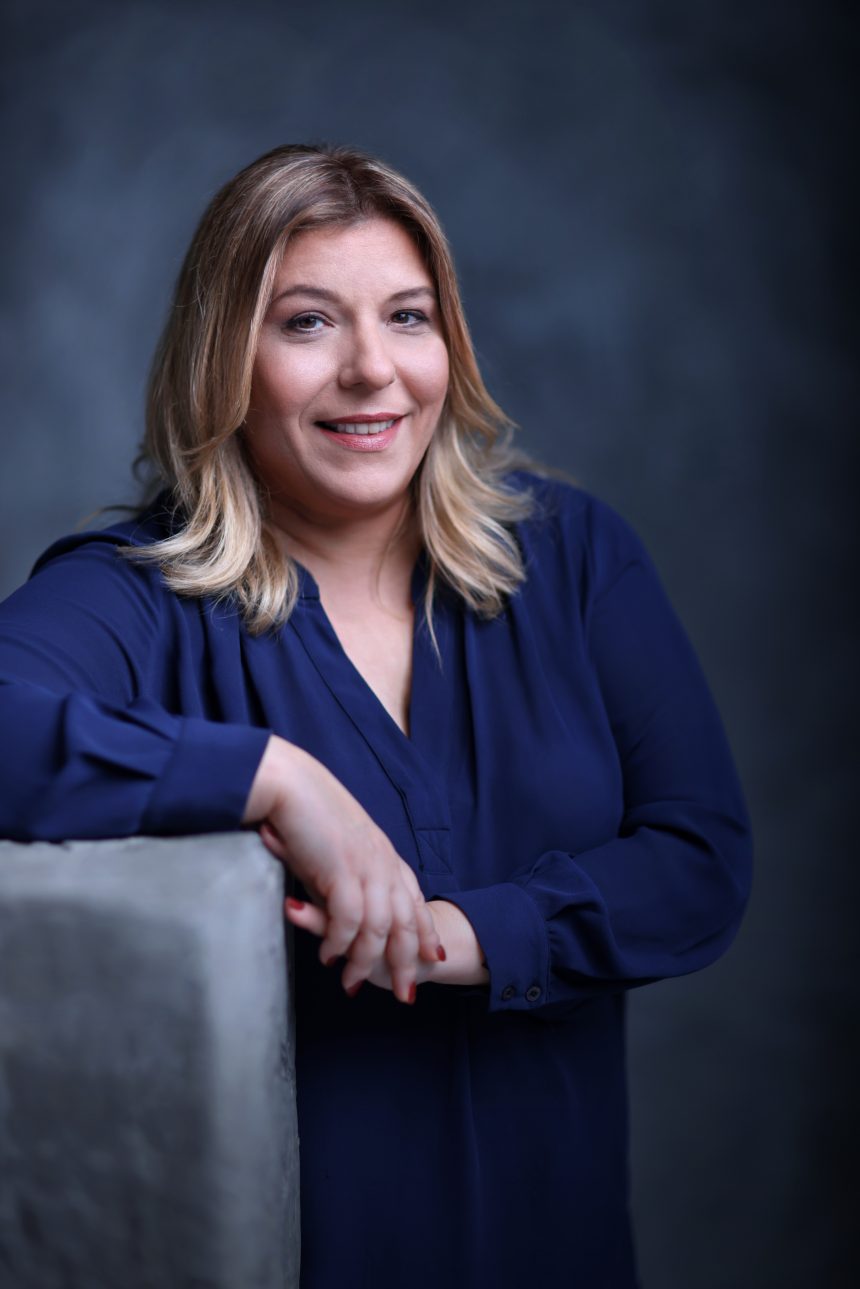A female politician with a consistent track record in positions of responsibility, a steadfast voice in favor of equality and social cohesion, Maria Syrengela is not one to mince words. From the front lines of the party youth to the upper echelons of public administration, her path is characterized by continuity, targeting and action.
A graduate of the Faculty of Philosophy of the National University of Athens and a holder of a master’s degree in Executive Services Management from the Athens University of Economics and Business, she served as Secretary General and then as Deputy Minister of Labor and Social Affairs with the portfolio of Equality, Demographic Policy and Family — a portfolio that was created for the first time during her tenure. With a substantial contribution to European and national decision-making centers, she has systematically highlighted issues that for years were considered “footnotes” on the political agenda: domestic violence, gender equality, diversity, support for the family and youth.
In the 2023 National Elections, the citizens of the Western Sector of Athens elected her to Parliament for the first time. A few months later, she was elected Secretary of the Political Committee of New Democracy, becoming, in fact, the first woman in this position, proving that trust is neither accidental nor given.
In the interview that follows, she speaks candidly about her political journey, the battles she fought for equality, support for vulnerable groups, respect for diversity, but also about her vision for Western Athens — the region she represents in Parliament and which, as she emphasizes , “has strength, identity and a future.”
Ms. Syrengela, you have a long career in both politics and public administration, with an emphasis on gender equality and social policy issues. How do you currently assess the progress that has been made in our country in these areas?
Greece has come a long way in recent years in the field of gender equality and social inclusion , but there is still work to be done and social stereotypes to be overcome. When I took over as Deputy Minister for Equality, Family and Demographic Policy, our priority was to move from theory to practice, and I believe that we have largely succeeded. That is why an autonomous portfolio was created for the first time – something that shows the importance that the government of Kyriakos Mitsotakis gives to these issues.
What, in your opinion, were the most significant initiatives implemented during your ministry?
One of the most important was the strengthening of the Network of Structures for abused women, with 43 Counseling Centers and 19 Shelters. At the same time, the SOS Line 15900, which operates 24/7 and has saved lives. We also launched awareness-raising campaigns to eliminate gender stereotypes, with the participation of artists and people from civil society and with the SHARE Sign in businesses. Furthermore, the contribution of Law 4808/21 that we enacted is decisive in combating violence and harassment in the working environment. And finally, I could not omit paternity leave and the expansion of maternity leave for women in the private sector – which today covers all working women in every sector.
What is your current perception of equality in Greece? You have traveled all over the country. What do people tell you?
There are significant differences by region, both in terms of access to structures and in terms of culture. In some areas, stereotypes are still strong. But I also see great progress: women breaking their silence, young men becoming allies for change, businesses investing in diversity. There is still work to be done, but we are not starting from scratch.
How do you approach diversity in its broadest definition? I’m referring to LGBTQ+ people, neurodiverse people, people with disabilities.
Diversity is not just a matter of visibility. It is a matter of respect, equal opportunities and inclusion . You cannot talk about social justice if you do not have policies for all persons, regardless of sexual orientation, gender identity or neurodevelopment. That is why I actively participate in the Committee on Equality and Human Rights , the Subcommittee on Persons with Disabilities , but also in PACE , the Parliamentary Assembly of the Council of Europe, where we promote common strategies to combat discrimination.
You have often spoken about empowering women at work and addressing sexism in the workplace. How does this translate into policy?
With very specific steps and legislation. I have already mentioned 4808/21 that we voted on while I was Deputy Minister and it really protects women and men in their workplace. We also have the strengthening of parental leave for fathers, incentives for businesses to implement equality policies , training programs for women in leadership positions, but also actions against sexist behavior. You see, substantive equality is not imposed, it is built.
And youth? What is their role in promoting a more tolerant and inclusive society?
Youth has the power to break down stereotypes and build bridges. I have served as vice-president of the EPP Youth, as well as on the Executive Board of ONNED, and I know how important it is for young people to have their voices heard in international fora. We are investing in the new generation, not only with more inclusive curricula, but also by supporting activism and volunteering.
What message do you want to send today to citizens who feel they belong on the margins?
To know that they are not alone. That the state is changing, that there are policies and individuals who are working consistently to build a Greece that is more just, humane and open to diversity . Equality is not a slogan. It is a prerequisite for moving forward – all of us together.
Neurodiversity is an issue that is rarely discussed politically, but it concerns many families. How do you approach it?
People who are neurodifferent – whether with autism, ADHD, or other syndromes – have talents, potential, and values that we must highlight. At the Ministry, we have strengthened cooperation with organizations and structures that provide support to these families. We promote work integration programs, parent and teacher training, as well as information campaigns to “break” the taboo. Inclusion starts in childhood and school.
What do you think is the biggest problem facing women in Greece today?
The biggest obstacle is the double or even triple burden : work, family and often social expectations based on outdated standards. At the same time, gender-based violence remains a tragic reality for many women. We have worked to provide them with the structures they need, but society must also be educated further so that there is no tolerance for violence and sexism.
You have held leadership positions in both the public and political sectors. What is it like for a woman to lead in traditionally male-dominated spaces?
It is a challenge, but also a responsibility. Not only to succeed as an individual, but also to pave the way for the next women. Being the first female Secretary of the Political Committee of ND is an honor, but also a message: that barriers are breaking. And they must continue to break, until it is no longer news that a woman is in a leadership position.
Are there any actions that touched you personally? When you implemented them, did you feel that something changed?
Politics for me must touch people’s lives – otherwise it is just theory. So, the policies that we built at the Ministry of Labor and Social Affairs at the time were policies taken from the life of a mother – from my life. I was thinking about the difficulties that my husband and I went through as a working mother of two children and what I would like the state to offer me. But the action that I will never forget and which made me feel the power of politics is the rescue of female parliamentarians, judges, activists from Afghanistan. A mission that we organized in collaboration with other ministries, with civil society organizations and with private individuals. A mission during which we literally saved over 150 women who were in danger from the Taliban and proved that when we all unite, we can make the impossible possible.
Is there a vision you would like to see realized in the coming years?
I would like to see a Greece where equality is not a claim, but a reality . Where “quotas” will no longer be needed because society will take diversity for granted. A Greece that will support the family, empower women, give opportunities to young women and young men and a voice to the vulnerable. This is my goal – and the reason I continue to serve public life.
You are elected in the Western Sector of Athens, an area with great potential but also significant social and economic challenges. What is your vision for Western Athens and what initiatives have you already undertaken in this direction?
The Western Sector of Athens is a vibrant, dynamic area, with hard-working people, with young men and women who are thirsty for opportunities, with families who raise their children with dreams. My vision for the neighborhoods where my own children grew up is a Western Athens with social cohesion, modern infrastructure, accessible services, sustainable development and substantial support for vulnerable groups . An area where every child will have access to quality education, every worker to stable employment and every woman to safety and empowerment.
Already during my previous term as Deputy Minister, we brought to the Western Sector actions that did not remain on paper: Information campaigns on domestic violence, strengthening access to Counseling Centers for women, pilot implementation of the “Neighborhood Nannies” program, which relieves working mothers, and interventions to combat school bullying and stereotypes. And now as a representative of the citizens in the Greek Parliament, I fight daily for schools, for infrastructures such as the Rema of Eschatia, but also for any other issue in our region.
It is an honor to represent such a special area in Parliament. And my daily goal is to listen, connect, and fight for the needs of Western Athens – with respect, responsibility, and meaningful work.
MARIA SYREGELA IS SECRETARY OF THE POLITICAL COMMITTEE OF THE NEW REPUBLIC & PARLIAMENTARY OF THE B2 WESTERN CONSTITUENCY OF ATHENS
